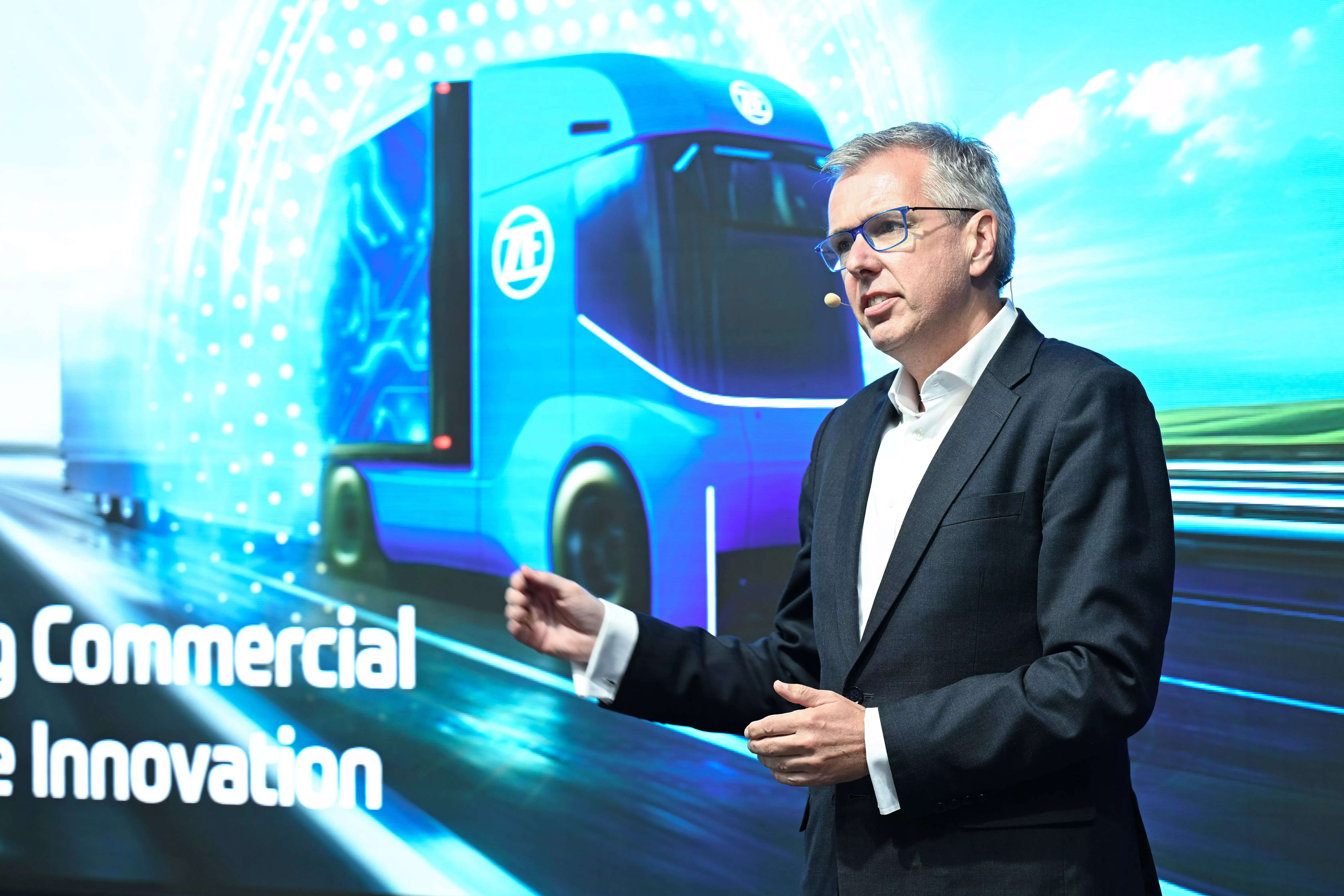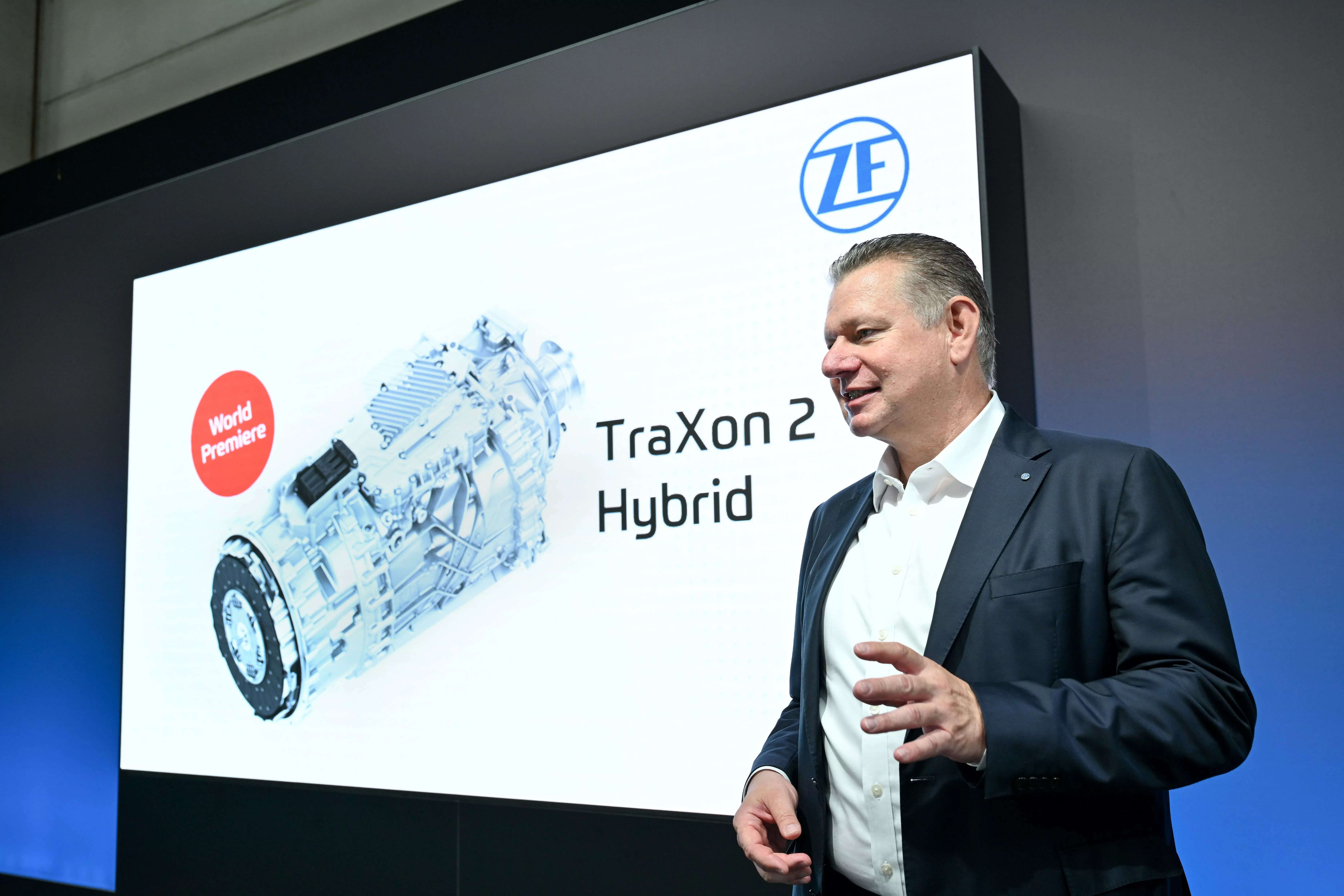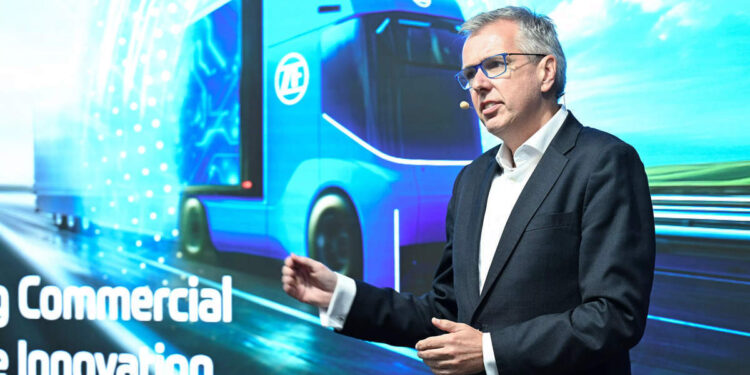
To set the pace for future transportation and mobility, the third-largest global Tier-I supplier ZF Friedrichshafen AG is riding on a ‘flexible’ approach for technology transfer globally and investment in research and development (R&D).
The German auto component major, which has a stronghold in areas like transmissions, feels its core strength lies in extending to all categories of vehicles, which puts it in a position to industrialize innovations “quickly” and offer them to customers at “competitive prices”. In the industrial technology domain, it is quite confident it will benefit from achieving economies of scale.
“We want to focus on areas where our strength lies. One of our greatest strengths is flexibility,” said Dr Holger Klein, CEO, ZF Group at its Global Technology Day in Jeversen, Germany.
“Develop once, roll out everywhere,” the CEO said.
To ensure a profitable path for the long term, the Group plans to make global investments in the future of almost EUR 18 billion by the end of 2026. Of this, approximately EUR 10.6 billion is to be spent on R&D and more than EUR 7 billion is to be invested in property, plant and equipment.
Move towards Hybrids
With a strong focus on technology and systems, Prof Dr Laier, Member of the Board of Management, ZF Friedrichshafen AG is quite confident about the growing preference of hybrids globally. He admitted that as the number of fully EV registrations is increasing more slowly than expected- not only for passenger cars but also in the commercial vehicle sector- demand for EVs is stagnating, especially in Europe and the USA, which is leading to price competition in many markets. However, India is on a different trajectory and EVs are yet to reach that point of stagnation.
Laier is also responsible for CV Solutions and Industrial Technology Division and Corporate Production Function.

At the company’s Global Technology Day 2024, ZF showcased the new hybrid transmission- TraXon 2 Hybrid for heavy CVs. Its production is scheduled to begin in the next 2-3 years.
According to a recent report from Counterpoint Research, sales of hybrid vehicles in China, which have both electric motors and combustion engines, vastly outpaced those of full battery-powered alternatives, rising 46% year over year. BEV sales rose 7%.
“We need to have bridging technology to keep the fleets running in this transition to green mobility. What we see right now is an increasing interest in hybrid transmissions in Europe and in China. ZF is prepared to support the diverse incremental steps and regional variations in demand during the transition,” Laier said.
Heavy-duty vehicles produce a quarter of Europe’s road transport emissions. Currently, most trucks on European roads run on diesel. As per the new law, most new heavy-duty vehicles sold in the EU from 2040 are required to be emissions-free. Manufacturers will have to sell a large share of fully CO2-free trucks (including EVs and alternate fuels) to offset any remaining sales of new CO2-emitting vehicles in 2040.
CEO Klein believes that incentives and infrastructure can play a key role in bringing back the demand for EVs. “ZF will help OEMs achieve their targets. But there is a need to create infrastructure and investments need to be made in the right direction, and that will happen when certain incentives are available.” For suppliers to make timely choices, he urged for a collaboration in government policy and industry.
Last year, ZF unveiled a 800V e-drivetrain at its annual Global Technology Day.
Commercial Vehicle Unit
ZF’s commercial vehicle (CV) division supplies parts and systems to makers of trucks, buses and trailers as well as fleet operators. It accounted for 17% of total sales last year, making it the group’s second-largest unit by revenue.
Klein said the CV business has been successful in its third year and that the Wabco acquisition “served as a strategic importance and paid well”. Wabco India Limited became part of the ZF Group in May 2020.
As per a recent media report, ZF Friedrichshafen is considering an IPO of its CV division.
The CEO said that while the company is satisfied with the division’s positioning, it is still examining “all options” regarding partners and other investment structures on the capital market. “Such IPOs would be an option in close consultation with our shareholders.”
India Business
ZF India has a turnover of over INR 10,000 crore. Out of ZF’s over 170 manufacturing units worldwide, 18 are in India and over 100 in the US and Europe.
For the India market, Liar wants to focus on three key areas- growing the local market, expanding the export base, and solidifying the R&D base.
In a strategic move, ZF Group has recently sold a 7.5% stake in its Indian subsidiary, ZF Commercial Vehicle Control Systems India Limited (ZF CVCS India).
The company states this transaction will “strengthen the financial flexibility of ZF, allowing it to invest in its further growth, and in the dynamically developing Indian market.”
In February this year, ETAuto that the German supplier inaugurated its new plant in Oragadam, Tamil Nadu (TN), and committed to invest INR 1,800 crore until 2030. This Oragadam plant will be ZF’s 19th facility in India.
ZF started operations in the Indian market in 1984 through its JV partner. In 2007, it set up the first wholly owned subsidiary ZF India. Currently, the automotive supplier has 14 entities (including 3 JVs), 10 engineering centers and 18 plants, with over 15,000 employees in the country. It also has R&D centers in Pune, Coimbatore, Chennai and Hyderabad, employing over 4600 engineers.

















